With just one month to go to EuroSkills 2025, Anviksha Patel was invited to get a glimpse of the behind-the-scenes preparation that WorldSkills UK puts its competitors through ahead of the international competition.
A group of 19 young students and apprentices gathered from England, Wales, Scotland, and Northern Ireland at the University of Warwick last weekend for their final training bootcamp before travelling to Herning, Denmark, in September.
Together, they are Team UK and they will go head-to-head against around 600 other young professionals from September 9 to 13, competing for bronze, silver and gold medals in their vocational specialisms, which range from cabinetmaking to mechatronics to hairdressing.
WorldSkills UK’s training programme is an intense schedule for Team UK and the dedicated band of training managers that support them. There are multiple pressure tests against international counterparts and exercises on handling the mental pressure that comes with competing for your country on the international stage.
Parisa Shirazi, WorldSkills UK’s director of standards, said the support has to be wraparound and holistic.
“This weekend is primarily positioned around equipping those individuals with competition craft, in terms of the things that will help them improve their game, from lean working principles, so work organisation management all the way through to focus and distraction control,” she said.
At the bootcamp, competitors and training managers heard from the organisation’s health and wellbeing team to understand how nutrition and sleep will impact their performance.
They also had a stretching session, which competitors are expected to practise before each competition day. There was mindset training too, teaching the team how to get out of their heads and focus on the task at hand.
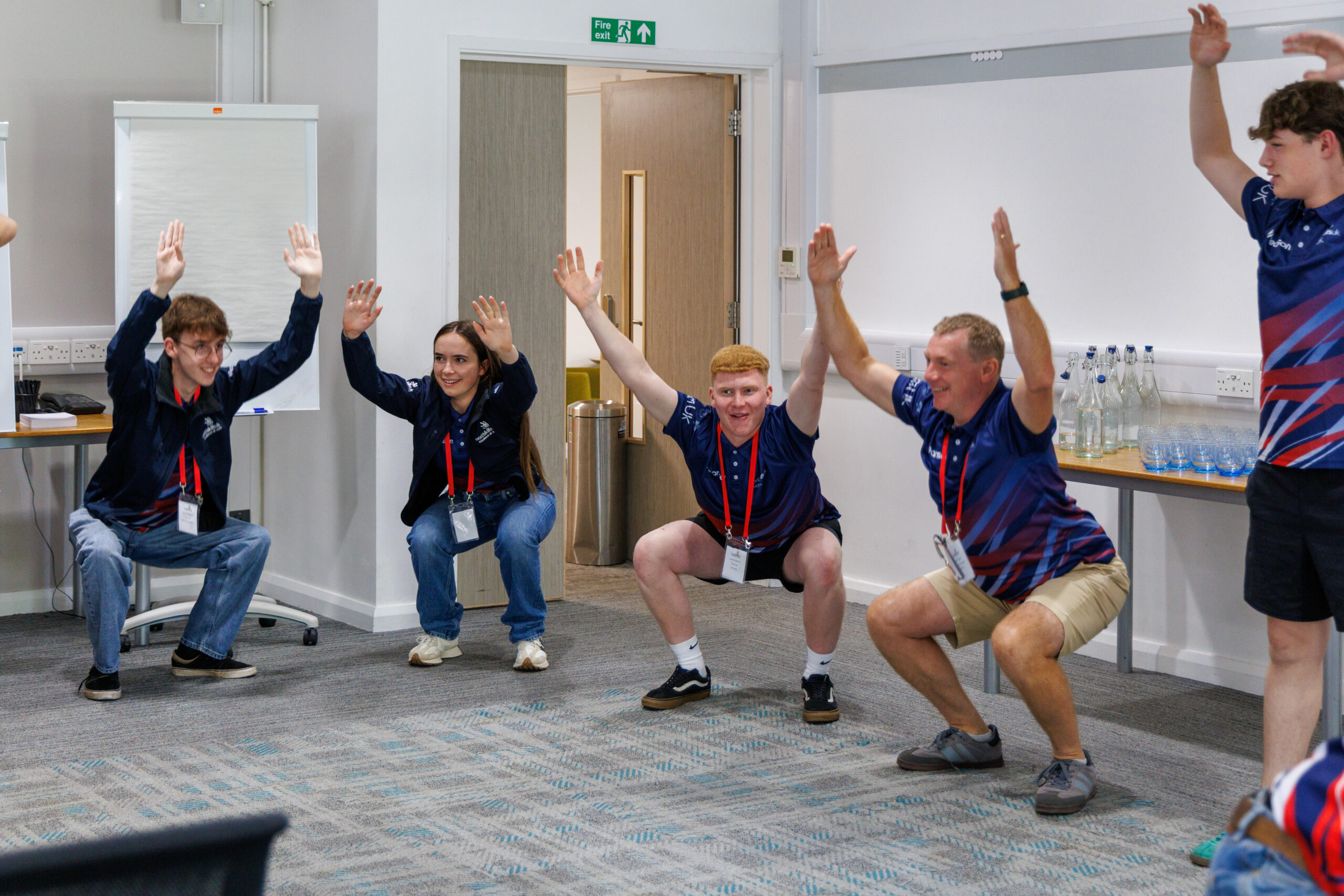
In a session delivered by one of the WorldSkills UK team, competitors focused on all the potential distractions they could encounter at EuroSkills; members of the public cheering and filming them for hours, potential sabotage by rival competitors and even how to coordinate toilet breaks.
“Just by being in a large public environment is going to be quite overwhelming,” Shirazi said.
She added: “We instil some of the steps, practices and methods that are going to help you perform at your very best, and this is about personal best.
“Yes, it’s the European championships, but all we can ask of these individuals is to have that mindset that’s going to enable them to kind of push beyond where they are at, making sure that they’re striving for excellence.”
Pressures of training
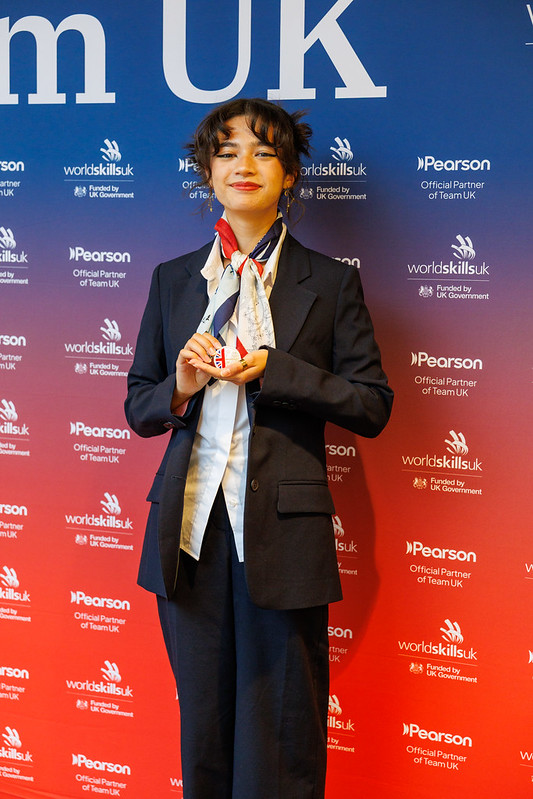
The 19 competitors will participate in 17 skills at the European event. The competition marks a milestone in the 18-month training schedule, which crescendos at WorldSkills 2026 in Shanghai, China.
EuroSkills Herning will see the first UK entry in the graphic design competition, represented by 19-year-old Melody Cheung, a student at Bridgend College.
She told FE Week that she was feeling the pressure a little.
“It’s a lot of pressure, but at the same time, there’s nobody to compare me to, which has its downfalls, but again, there’s nobody to compare me to. So we don’t have previous training to look back on.”
Cheung was homeschooled and had her first experience of mainstream education at college, studying a level 2 art and design before moving onto a level 3 animation course.
When asked how it has shaped her journey to Team UK, she said: “It’s important that I am where I am from being homeschooled because I think there’s a lot of disbelief about homeschool kids.”
Her biggest challenges for this competition are flying abroad for the first time and the potential distractions of the competition hall.
Web technologies competitor Finn Gallagher was feeling a bit nervous about travelling too.
“I haven’t been to another country before,” he admitted.
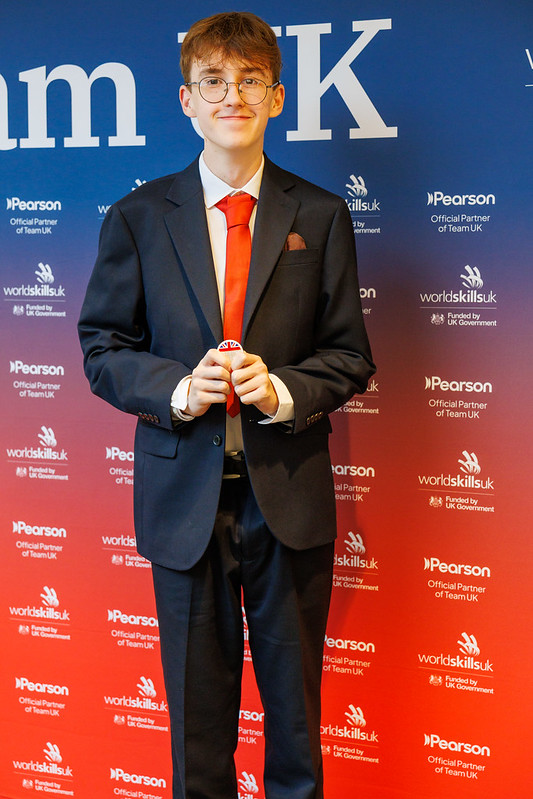
The Cardiff University student’s confidence has grown a lot since joining the WorldSkills squad 18 months ago.
“Towards the start of the competition, I wouldn’t really say I’m somebody who actively strives to push myself out of my comfort zone,” he said.
Examples like the bootcamp weekend itself, meeting new people, and conversing were especially challenging initially.
But Gallagher said his coaches have provided tips to hone their craft that have bled into his everyday life.
“I think one thing that they focus a lot on is time management,” he explained, adding that he is currently juggling two jobs as well as university work.
“Definitely at the start of university, I found myself a procrastinator, disorganised, and a tiny bit messy, but they give us tips to like handle that, how to schedule ourselves, and I found that also very applicable to my personal life as well.”
Most of Team UK have other commitments, such as self-employment, like mechatronics competitor Jason McVerry or being part of another national team, like health and social care champion Grace Longden.
Longden is a UK triathlete in her age group and is eagerly awaiting her T-level results this week, with the hope of studying physiotherapy at Keele University.
“Confidence has been quite a big thing for me,” she said.
“Before WorldSkills, I wasn’t as confident, I was quite a quiet person. But now it’s just developed my communication with other people and built my confidence that I have that self-belief in me, that I am good enough.”


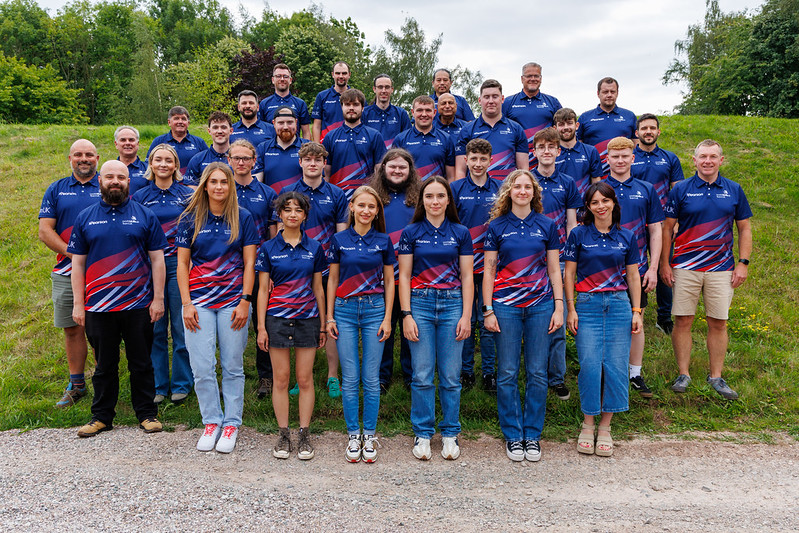







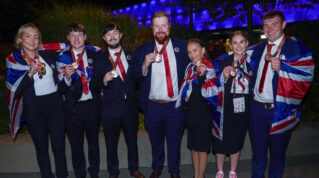

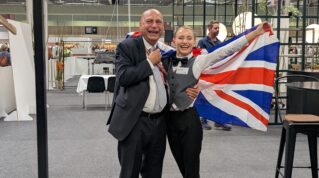


Your thoughts